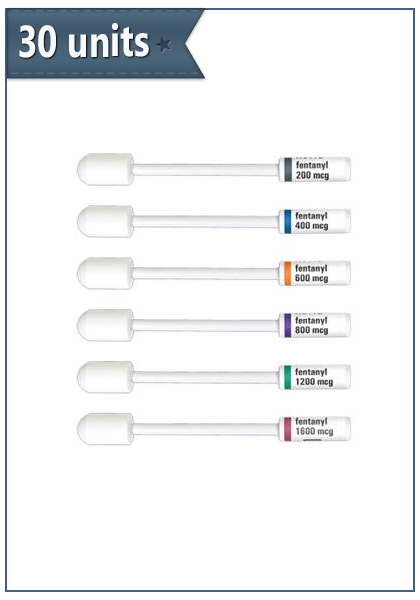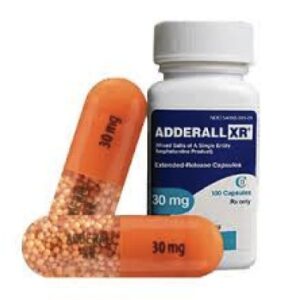What is Actiq?
Actiq (fentanyl citrate) is an opioid pain medication. An opioid is sometimes called a narcotic.
Actiq treats “breakthrough” cancer pain that is not controlled by other medicines.
Actiq is not for treating pain that is not cancer-related, such as migraine headaches or pain after surgery.
Important information
Fentanyl can slow or stop your breathing. MISUSE OF ACTIQ CAN CAUSE DEATH, especially in a child who gets a hold of an Actiq lozenge and places it in the mouth. Keep both the used and the unused lozenges out of the reach of children.
This medication is not for treating pain that is not cancer-related, such as migraine headaches or pain after surgery.
Fentanyl may be habit-forming. Never share this medicine with another person, especially someone with a history of drug abuse or addiction. Keep the medication in a place where others cannot get to it.
Actiq is available only from a certified pharmacy under a special program called Actiq REMS Program.
Do not use Actiq if you are NOT already being treated with a similar opioid (narcotic) pain medicine and are tolerant to it. You may not be able to use Actiq if you also use certain antibiotics, antifungal medications, heart or blood pressure medications, or medicines to treat HIV or AIDS. Tell your doctor about all medicines you use.
If you switch from using Actiq to using other forms of fentanyl, you will not use the same dose.
Before taking this medicine
Fentanyl may be habit-forming. Never share this medicine with another person, especially someone with a history of drug abuse or addiction. Keep the medication in a place where others cannot get to it. Selling or giving away Actiq to any other person is against the law.
Do not use Actiq if you are allergic to fentanyl, or if you are NOT already being treated with a similar opioid (narcotic) pain medicine and are tolerant to it.
Some medicines can cause unwanted or dangerous effects when used with Actiq. You may not be able to use this medicine if you also use certain antibiotics, antifungal medications, heart or blood pressure medications, or medicines to treat HIV or AIDS. Tell your doctor about all medicines you use.
Some medicines can interact with fentanyl and cause a serious condition called serotonin syndrome. Be sure your doctor knows if you also take medicine for depression, mental illness, Parkinson’s disease, migraine headaches, serious infections, or prevention of nausea and vomiting. Ask your doctor before making any changes in how or when you take your medications.
To make sure Actiq is safe for you, tell your doctor if you have:
- any type of breathing problem or lung disease;
- a history of head injury, brain tumor, or mental illness;
- a history of alcoholism or drug addiction;
- a seizure disorder;
- liver or kidney disease; or
- low blood pressure, heart disease, slow heartbeats.
This medicine should not be given to a child younger than 16 years old. Do not give Actiq to any person who does not have a personal prescription for this medicine.
If you use fentanyl while you are pregnant, your baby could become dependent on the drug. This can cause life-threatening withdrawal symptoms in the baby after it is born. Babies born dependent on habit-forming medicine may need medical treatment for several weeks. Tell your doctor if you are pregnant or plan to become pregnant.
Fentanyl can pass into breast milk and may cause sleepiness or breathing problems in a nursing baby. Fentanyl may also cause addiction and withdrawal symptoms in a nursing infant. Do not breast-feed while using Actiq.
How should I take Actiq?
Use Actiq exactly as prescribed. Follow all directions on your prescription label. Never use this medicine in larger amounts, or for longer than prescribed. Tell your doctor if the medicine seems to stop working as well in relieving your pain.
Fentanyl can slow or stop your breathing. MISUSE OF ACTIQ CAN CAUSE DEATH, especially in a child who gets a hold of a lozenge and places it in the mouth. Read all patient instructions carefully before using this medicine.
The Actiq transmucosal unit is a fentanyl citrate lozenge attached to a plastic handle. Each unit is wrapped in a child-proof blister pack. Cut the blister pack open with scissors when you are ready to use the unit.
Place the Actiq lozenge in your mouth between your cheek and gum, and hold the handle with your fingers. Twirl the handle to move the medicine around in your mouth while sucking on it.
Allow the lozenge to dissolve in your mouth for 15 minutes. Swallow when needed. Do not bite or chew the lozenge. Do not eat or drink anything while the unit is in your mouth. If you need to use a second unit, wait at least 15 minutes after you have finished the first unit. Use only 1 Actiq unit at a time.
If you feel dizzy or sick to your stomach before the medicine has completely dissolved, stop using the unit and call your doctor.
Do not stop using any other pain medicines your doctor has prescribed for you.
If you switch from using Actiq to using other forms of fentanyl, you will not use the same dose. Many forms of fentanyl are given at lower doses than Actiq. If you use the same dose of each medication, you may have life-threatening overdose symptoms.
Pay special attention to your dental hygiene. Actiq can cause dry mouth leading to tooth decay.
Do not stop using Actiq suddenly, or you could have unpleasant withdrawal symptoms. Ask your doctor how to safely stop using this medicine.
Store at room temperature away from moisture and heat. Leave each unit in its child-proof blister pack until you are ready to use it.
Keep track of how many Actiq units have been used from each new supply of this medicine. Fentanyl citrate is a drug of abuse and you should be aware if anyone is using your medicine improperly or without a prescription.
Keep both used and unused Actiq units out of the reach of children or pets. The amount of fentanyl citrate in a single lozenge can be fatal to a child who accidentally sucks on or swallows the unit. Seek emergency medical attention if this happens.
Actiq comes with a kit and instructions for storing and disposing of the lozenges.
After you have stopped using this medication, use wire-cutting pliers to cut the handles off any unused Actiq lozenges. Do not keep leftover lozenges. Ask your pharmacist where to locate a drug take-back disposal program. If there is no take-back program, flush the lozenges down the toilet. Follow the instructions provided with this medicine when disposing of unused medicine. Disposal of medicines by flushing is recommended to reduce the danger of accidental overdose causing death. This advice applies to a very small number of medicines only. The FDA, working with the manufacturer, has determined this method to be the most appropriate route of disposal and presents the least risk to human safety. Follow the instructions provided with Actiq when disposing of unused medicine.
What happens if I miss a dose?
Since Actiq is used as needed, you may not be on a dosing schedule. If you are taking the medication regularly, take the missed dose as soon as you remember. Skip the missed dose if it is almost time for your next scheduled dose. Do not take extra medicine to make up the missed dose.
What happens if I overdose?
Seek emergency medical attention or call the Poison Help line at 1-800-222-1222. A fentanyl overdose can be fatal, especially in a child or other person using the medicine without a prescription. Overdose symptoms may include slow breathing and heart rate, severe drowsiness, muscle weakness, cold and clammy skin, pinpoint pupils, and fainting.
What should I avoid?
Do not drink alcohol or dangerous side effects and death could occur. Actiq may impair your thinking or reactions. Avoid driving or operating machinery until you know how this medicine will affect you. Dizziness or severe drowsiness can cause falls or other accidents.
Grapefruit and grapefruit juice may interact with fentanyl citrate and lead to unwanted side effects. Discuss the use of grapefruit products with your doctor.
Actiq side effects
Get emergency medical help if you have any signs of an allergic reaction to Actiq: hives; difficult breathing; swelling of your face, lips, tongue, or throat.
Remove the Actiq unit from your mouth and call your doctor at once if you have:
- weak or shallow breathing;
- confusion, extreme drowsiness; or
- a light-headed feeling, like you might pass out.
This medicine is more likely to cause breathing problems in older adults and people who are severely ill, malnourished, or otherwise debilitated.
Seek medical attention right away if you have symptoms of serotonin syndrome, such as: agitation, hallucinations, fever, sweating, shivering, fast heart rate, muscle stiffness, twitching, loss of coordination, nausea, vomiting, or diarrhea.
Common Actiq side effects may include:
- dizziness, mild drowsiness, depressed mood;
- sleep problems (insomnia);
- headache, weakness, anxiety;
- nausea, vomiting, constipation; or
- mild rash.
This is not a complete list of side effects and others may occur. Call your doctor for medical advice about side effects. You may report side effects to FDA at 1-800-FDA-1088.
What other drugs will affect Actiq?
Some medicines can cause unwanted or dangerous effects when used with Actiq. Tell each of your healthcare providers about all medicines you use now, and any medicine you start or stop using.
Taking this medicine with other drugs that make you sleepy or slow your breathing can cause dangerous or life-threatening side effects. Ask your doctor before taking Actiq with a sleeping pill, a sedative or tranquilizer, other narcotic pain medicine, muscle relaxer, or medicine for anxiety, depression, or seizures.
You should not use Actiq if you have used an MAO inhibitor in the past 14 days. A dangerous drug interaction could occur. MAO inhibitors include isocarboxazid, linezolid, methylene blue injection, phenelzine, rasagiline, selegiline, tranylcypromine, and others.
Other drugs may interact with fentanyl citrate, including prescription and over-the-counter medicines, vitamins, and herbal products. Not all possible interactions are listed in this medication guide. Tell your doctor about all your medications and any you start or stop using during treatment with Actiq











Reviews
There are no reviews yet.